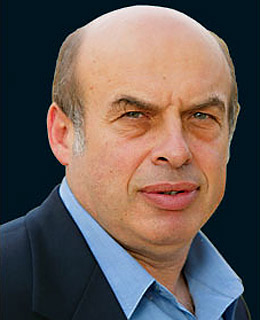
In the 1980s the world's most famous political prisoners were South Africa's Nelson Mandela and Soviet Jewish dissident Natan Sharansky. Rallies for Mandela were full of music and motion but Sharansky demonstrations were dull, windy affairs. A few of us in Jerusalem decided, somewhat whimsically, to remedy that with a dance song we called The Sharansky. Based on The Locomotion, it begins, "Everybody's doin' a brand new dance-ski/ Come on, baby, do the Sharansky/ I know you'll get to like him if you give him a chance-ski/ Come on, baby, do the Sharansky ..."
In 1986, after almost a decade in the gulag, Sharansky was released. He arrived in Israel to a hero's welcome. But he lacked the pomposity for the role. When he heard our lighthearted musical contribution to his struggle, he laughed and laughed.
Sharansky, 57, emerged from Siberia with more than his sense of humor intact. He also kept his ideals and beliefs. A supple thinker who once played world chess champion Garry Kasparov to a draw, his moral code is almost boyishly simple: a bright line divides right from wrong, courage from cowardice. He called his account of his years in the gulag Fear No Evil.
Last autumn Sharansky published another book, The Case for Democracy, which has become a manifesto for the Bush Administration. "If you want a glimpse of how I think about foreign policy, read Natan Sharansky's book," the President recently told reporters.
Bush, to be sure, thought that way before he had ever heard of Sharansky. But Sharansky's experiences and courage validate and reinforce the President's instincts. Sharansky's "book confirmed how I was raised and what I believe," Bush has said. These days, the Oval Office is dancing the Sharansky. Anyone who wants to keep up had better learn the steps.
Chafets, an author and journalist, was editor of the Jerusalem Report
From the Archive
What the President Reads: George Bush is famously anti-intellectual. But he seeks out authors who share his views and looks for reassurance